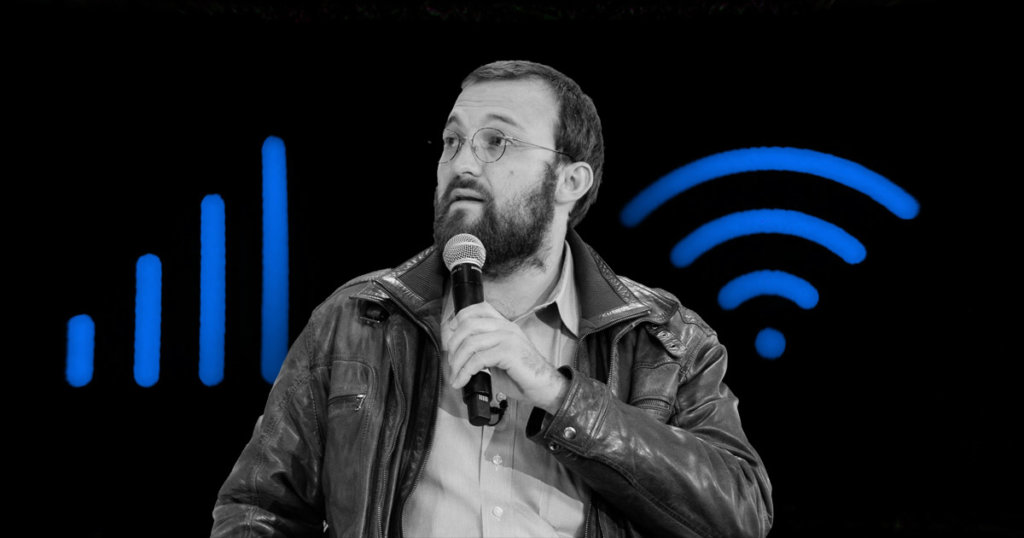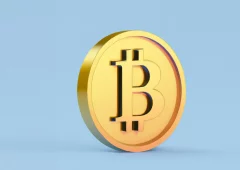Charles Hoskinson’s Long-Standing Crypto Prediction Is Playing Out
24.05.2025 17:00 2 min. read Alexander Stefanov
As U.S. banking giants move toward launching a unified stablecoin, Cardano founder Charles Hoskinson is taking a quiet victory lap.
The outspoken blockchain pioneer has long warned that traditional financial institutions would eventually co-opt crypto infrastructure—and now, it’s happening.
Following recent reports from The Wall Street Journal, JPMorgan, Wells Fargo, Bank of America, and Citigroup are reportedly in talks to create a bank-issued stablecoin, with backing from payment giants like Zelle and The Clearing House. The initiative aims to produce a fully regulated digital asset that could rival established players like Tether and Circle.
Hoskinson responded with a simple “As predicted” on X—three words that echoed loudly across crypto circles.
The move comes at a moment of regulatory clarity, as the GENIUS Act gains traction in the U.S. Senate, offering a framework for stablecoin compliance. With a pro-crypto White House under President Trump and a $243 billion stablecoin market ripe for disruption, the stage is set for banks to finally enter the digital currency arena.
For Hoskinson, this isn’t just validation—it’s a warning. He’s frequently cautioned that unless the crypto space stays decentralized and vigilant, it risks being absorbed by the very institutions it sought to disrupt.
While the banking sector’s embrace of blockchain could drive mainstream adoption, some fear that this shift will come at the expense of decentralization. A bank-backed token may win on trust and liquidity, but it also raises concerns about gatekeeping, censorship, and financial centralization—all issues that early crypto founders, Hoskinson among them, hoped to eliminate.
As the stablecoin wars heat up, Hoskinson’s voice remains a reminder that the future of crypto isn’t just about adoption—it’s about who controls the rails.
-
1
Binance Founder Says Bloomberg’s USD1 Report is False, Threatens Lawsuit
13.07.2025 8:30 2 min. read -
2
Binance CEO Issues Urgent Crypto Security Reminder
09.07.2025 17:30 2 min. read -
3
Top 7 Crypto Project Updates This Week
19.07.2025 18:15 3 min. read -
4
EU Risks Falling Behind in Digital Finance, Warns Former ECB Board Member
06.07.2025 13:00 2 min. read -
5
Crypto Sector H1 2025 Roundup: Binance Report Shows Institutional Surge and Tech Growth
19.07.2025 11:00 2 min. read
JPMorgan: Coinbase Could Gain $60B From USDC-Circle Ecosystem
A new report from JPMorgan is shedding light on the staggering upside potential of Coinbase’s partnership with Circle and its deep exposure to the USDC stablecoin.
5 Major US Events and How They Can Shape Crypto Market in The Next Days
The week ahead is shaping up to be one of the most pivotal for global markets in months. With five major U.S. economic events scheduled between July 30 and August 1, volatility is almost guaranteed—and the crypto market is bracing for impact.
eToro Launches 24/5 Stock Trading, Unlocking Round-the-clock Access to Top US Shares
Global fintech platform eToro has officially rolled out 24/5 trading on its 100 most popular U.S. stocks, giving users the ability to buy and sell equities at any time from Monday to Friday.
Stablecoins are Overtaking Visa: Here is The Latest Data
A new chart from Bitwise Asset Management has sent shockwaves through the financial world, showing that stablecoin transaction volumes are now rivaling—and in some cases surpassing—Visa’s global payments.
-
1
Binance Founder Says Bloomberg’s USD1 Report is False, Threatens Lawsuit
13.07.2025 8:30 2 min. read -
2
Binance CEO Issues Urgent Crypto Security Reminder
09.07.2025 17:30 2 min. read -
3
Top 7 Crypto Project Updates This Week
19.07.2025 18:15 3 min. read -
4
EU Risks Falling Behind in Digital Finance, Warns Former ECB Board Member
06.07.2025 13:00 2 min. read -
5
Crypto Sector H1 2025 Roundup: Binance Report Shows Institutional Surge and Tech Growth
19.07.2025 11:00 2 min. read


